
Singapore-based Seatrium has delivered a next-generation wind turbine installation vessel (WTIV) to Maersk Offshore Wind, following the completion of sea trials and final readiness evaluations.The custom-engineered vessel is designed to install 15+ MW-class offshore wind turbines and is equipped with a 1,900-tonne main crane featuring a 180-metre hook height.

Seatrium delivered FREDERICK PAUP to Manson Construction Co. Built at Seatrium’s Brownsville Texas yard, the Jones Act-compliant vessel is the largest self-propelled hopper dredger in US history.Key highlights:Largest in the U.S. – 420’ length x 81’ beam, with a 15,000+ cubic yard hopper capacityPowerful and Agile – Self-propelled with 25,000 horsepower, triple azimuthing stern drives

Frederick Joseph Harris of Mystic CT, passed peacefully at 5:47PM on 10/24/2025, with his family by his side. “Fred” was born on 11/25/1944 at Framingham Union Hospital to Frederick Everett and MaryRosa Camilla Harris.Fred was a proud patriot who loved his country. Fred received his bachelor’s degree in Marine Engineering from Maine Maritime Academy (with Honors) in 1967.
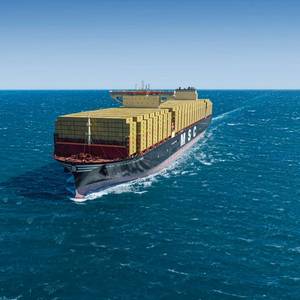
Italy's antitrust regulator said on Friday that Shipping Agencies Services (SAS), a unit of maritime group MSC, would drop its acquisition of a 49% stake in ferry operator Moby after the watchdog opened a probe into alleged restriction of competition.Moby, majority-owned by Onorato Armatori group, runs ferries linking Italy's mainland to tourist islands such as Sardinia and Corsica.
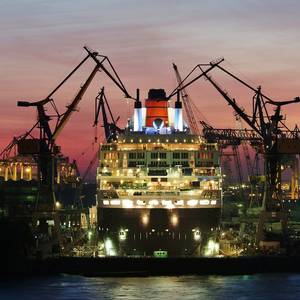
China's sanctions against five U.S.-linked affiliates of South Korean shipbuilder Hanwha Ocean are seen as a warning gesture without immediate impact, and Beijing is unlikely to gain much by expanding them, analysts said on Wednesday.The move, announced on Tuesday when the U.S. and China began charging additional port fees targeting each other's vessels

The U.S. on Tuesday rejected the "Net-Zero Framework" proposal by the IMO, which is aimed at reducing global greenhouse gas emissions from the international shipping sector, and threatened measures against countries that support it.The announcement, made in a joint statement by Secretary of State Marco Rubio, Commerce Secretary Howard Lutnick

An oil tanker carrying about 1 million barrels of crude oil suffered an explosion off Libya on June 27 but no injuries or pollution were reported, a spokesperson for the operator TMS Tankers said on Monday.The Marshall Islands-flagged tanker Vilamoura had left Libya's Zuetina port and was en route to Gibraltar when there was an explosion in the engine room, the operator said.

The superyacht that sank off Sicily last year, killing British tech tycoon Mike Lynch and six others, will be lifted out of the water next month after its mast is dismantled, people close to the matter said on Tuesday.The recovery of the British-flagged Bayesian, lying on its right side at a depth of around 50 metres (164 feet)
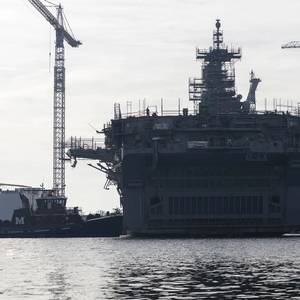
With your first steps as a cadet onto the Maritime Academy campus, your first union dues payment or first line thrown ashore from the tug, you are lectured on the importance of the “Jones Act”. A constant reminder throughout a US Seafarer’s career of commitment, loyalty and support for the legislation.
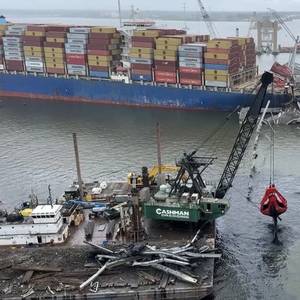
We are at the one-year since the Francis Scott Key (FSK) Bridge collapsed over the Patapsco River’s Fort McHenry Channel in Baltimore, Maryland. Nearly 100 percent of the wreckage and debris removal was conducted by the Jones Act private sector U.S. maritime industry. The FSK collapsed at about 1:28 a.m.
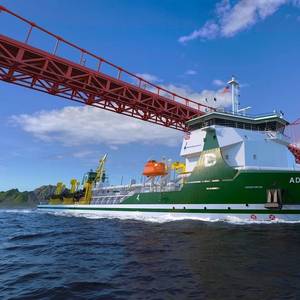
The Dutra Group, a California-based heavy civil marine contractor, has issued a notice to proceed to Eastern Shipbuilding Group (ESG) for the construction of a 10,464 cubic yard trailing suction hopper dredge, named Adele.The ship will be constructed at ESG's Allanton and Port St. Joe facilities. Delivery is scheduled for late 2028.

[The following are exerpts and paraphrasing from testimony given by Matthew O. Paxton, President of the Shipbuilders Council of America (SCA), to Congress on the morning of February 26, 2025.]While maritime strength and shipbuilding historically have been a cornerstone of global power, shifting times and geopolitical pressures impact readiness and output.